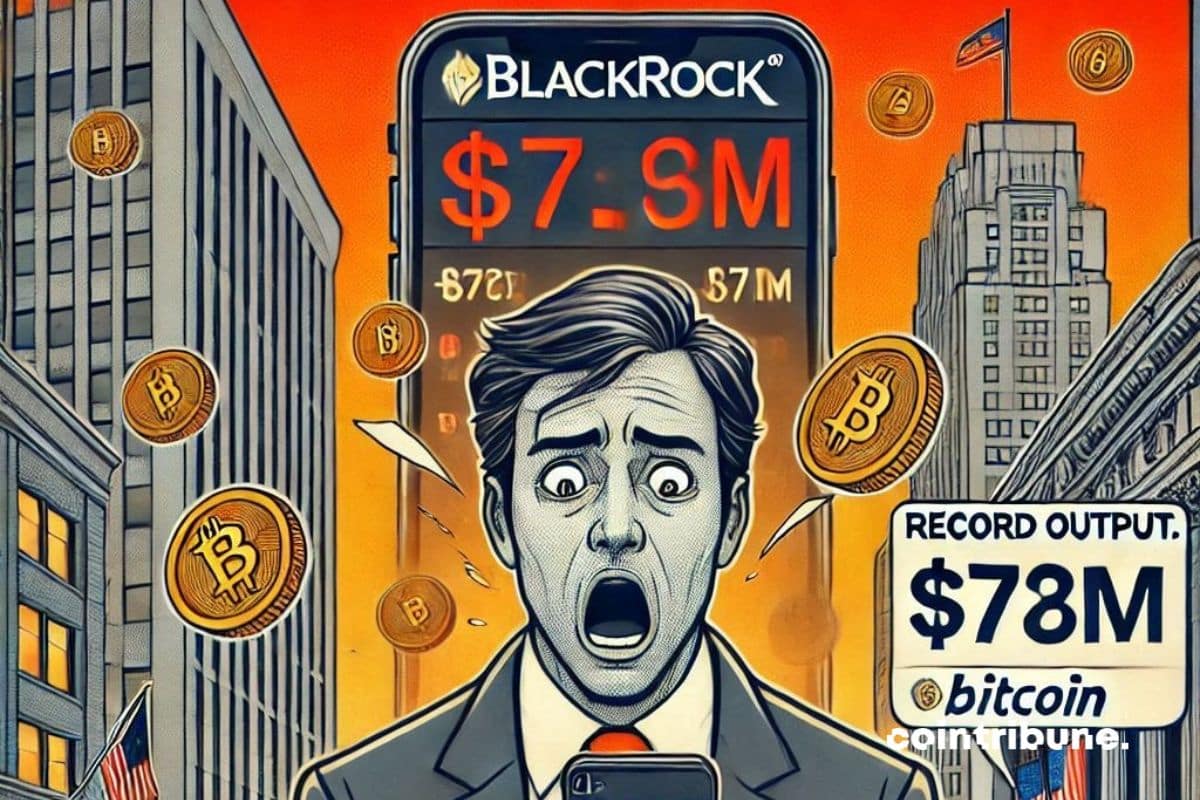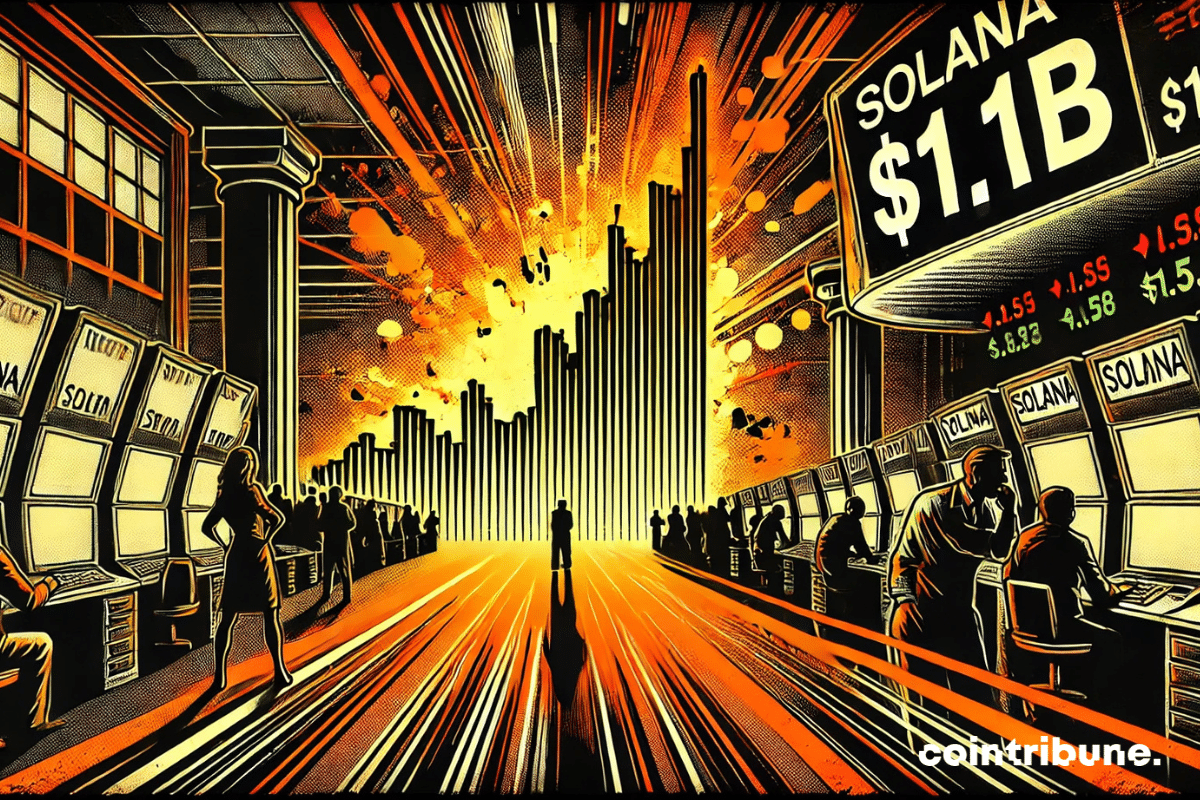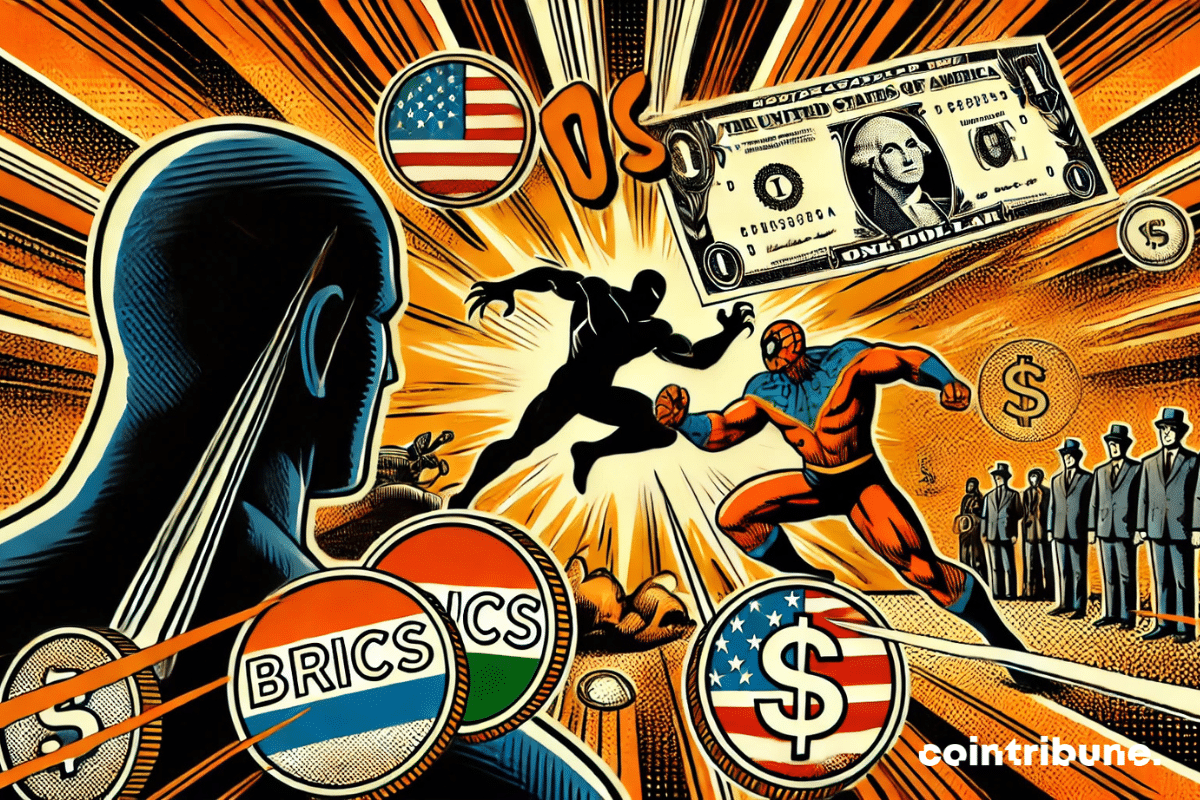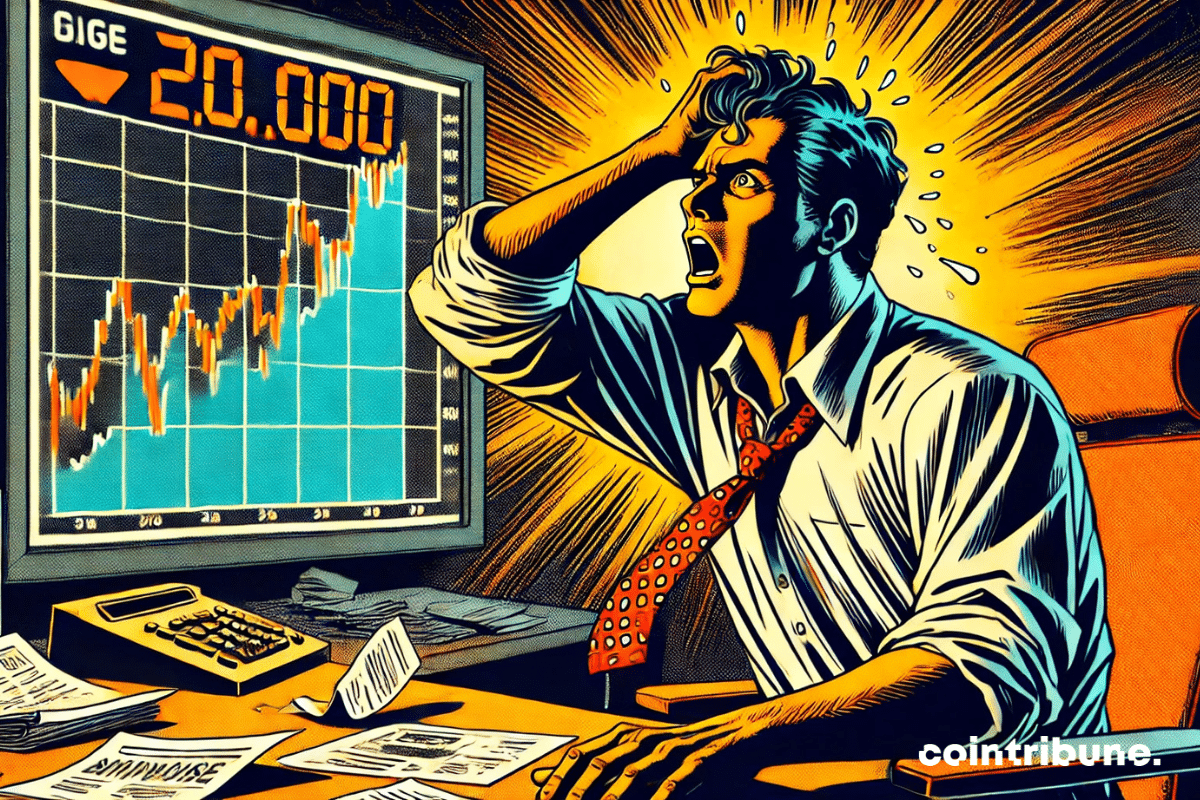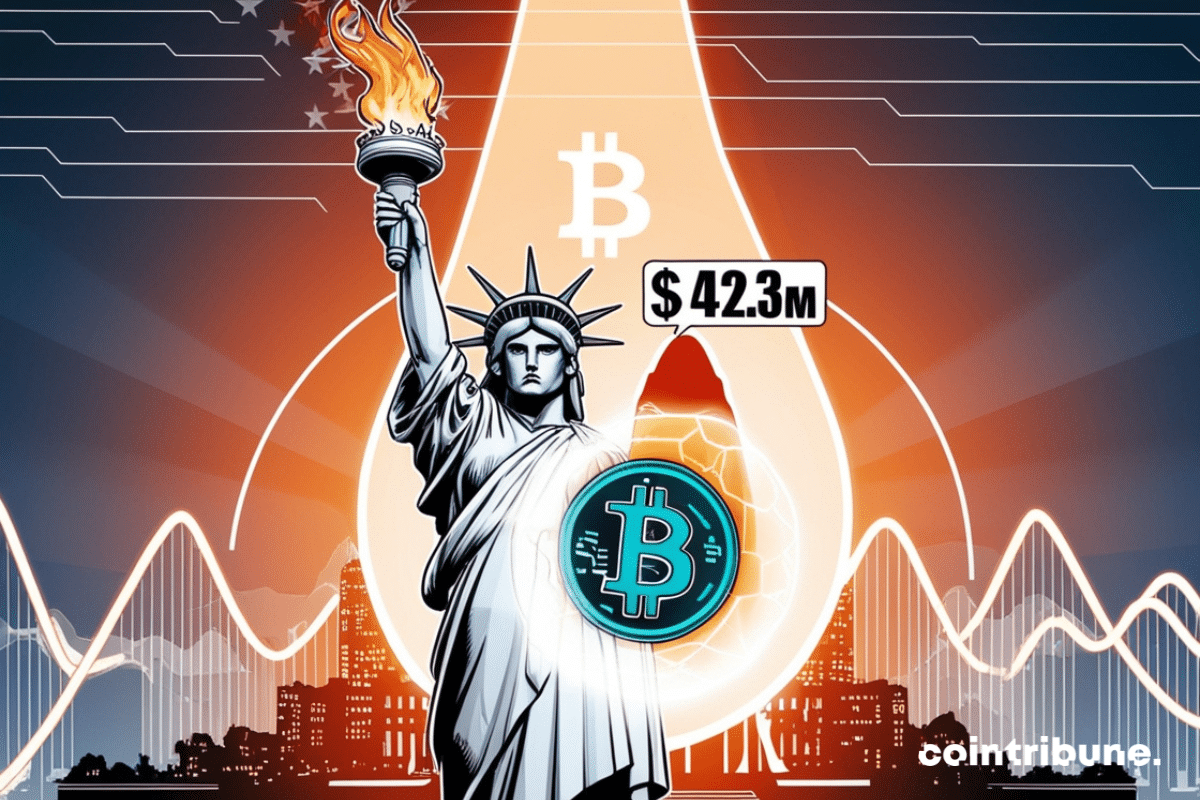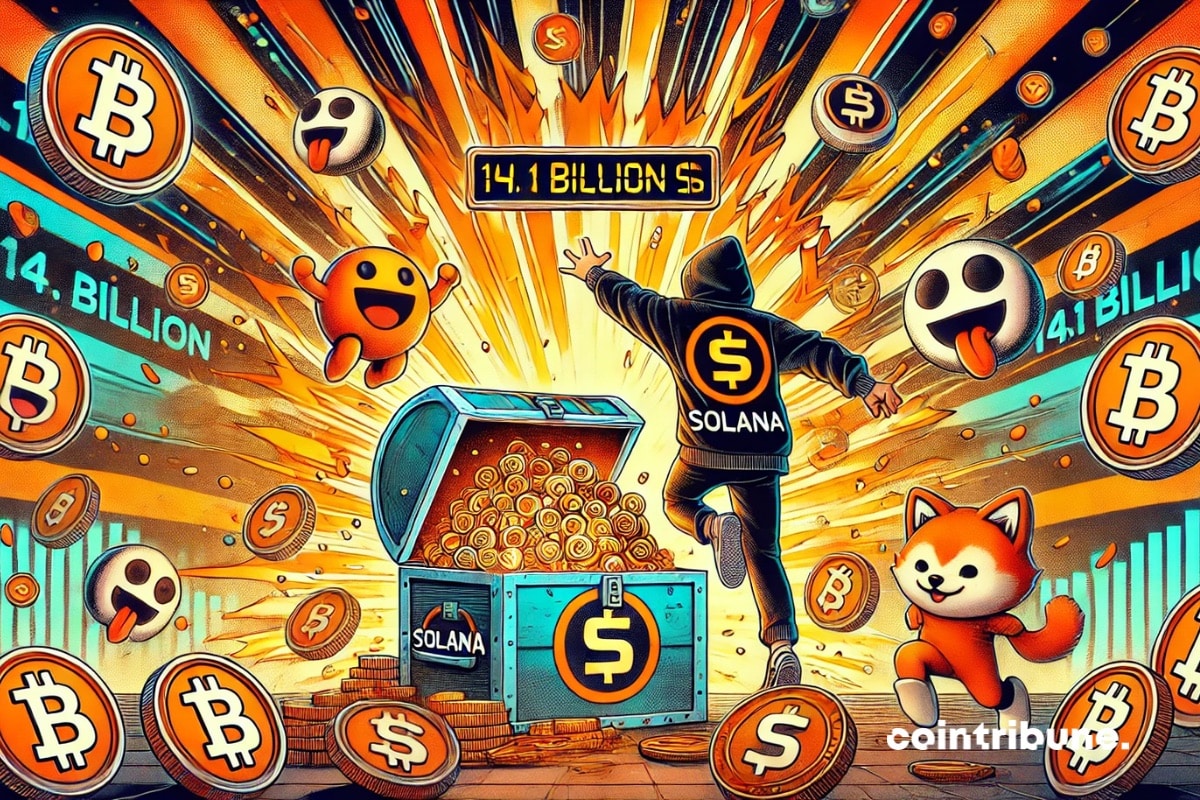Amid revolutionary announcements, technological advancements, and regulatory turbulence, the crypto ecosystem continues to prove that it is both a territory of limitless innovations and a battleground for regulatory and economic disputes. Here is a summary of the most notable news from the past week surrounding Bitcoin, Ethereum, Binance, Solana, and Ripple.
Archive December 2024
The cryptocurrency market has recently been shaken by a record fund outflow of 73 million dollars from BlackRock's Bitcoin exchange-traded fund (ETF) (IBIT). This event marks the largest fund outflow since the ETF's launch in January 2024.
Since its launch, Solana has distinguished itself as one of the most innovative blockchains in the industry. With its execution speed and some of the lowest transaction fees, it has attracted a dynamic ecosystem of developers and users. However, December 2024 marked a critical period. The Total Value Locked (TVL) in its DeFi ecosystem recorded a dramatic drop of $1.1 billion, reaching a critical level of $8.01 billion. This decline reflects weakened activity on the blockchain, as evidenced by a 7% decrease in the number of daily active addresses. At the same time, network revenues also fell by 24%, intensifying concerns about the sustainability and attractiveness of this leading platform. These numbers raise questions about Solana's ability to maintain its position in an increasingly competitive environment.
International economic dynamics always attract marked interest, particularly when coalitions like the BRICS are perceived as a threat to the hegemony of the American dollar. However, the recent statements from Russia, India, and South Africa have clarified their position. Indeed, these countries assert that no plan aims to weaken the American currency. They firmly reject the accusations of "de-dollarization" and emphasize their willingness to maintain stable relations with the United States.
As the year comes to a close, the bitcoin market finds itself at a decisive stage. Investors were hoping for a period of stability to end 2024 on a positive note after a series of significant fluctuations. However, several major technical indicators are countering these expectations and pointing towards a possible significant correction. Among these signals, the formation of a bearish pattern on the weekly charts and the erosion of critical support levels are raising serious concerns. Concurrently, macroeconomic conditions, marked by a decline in global money supply and a tightening of policies by the U.S. Federal Reserve, are increasing pressure on risk assets. These combined elements are fueling the most pessimistic projections. Thus, some observers even suggest that the price of bitcoin could drop by $20,000. A thorough analysis of these dynamics reveals both the challenges and the opportunities of a market in search of new certainties.
Nokia, the Finnish telecommunications giant, is heading towards a new digital era with a patent dedicated to the encryption of digital resources. This project could mark a significant advancement in securing crypto assets and blockchain technology.
On Wall Street, the rumor is growing: 2049, Bitcoin soars, the debt collapses. A grand bet, a shaken America.
In December, Solana continued to outperform Ethereum in the decentralized exchange (DEX) industry for the third consecutive month. Thanks to the growing popularity of memecoins, Solana recorded record transaction volumes, thereby consolidating its position against crypto giants like Ethereum.
Former FTX CEO Sam Bankman-Fried, sentenced to 25 years in prison for fraud, could he benefit from a presidential pardon? This possibility, linked to his political connections, is sparking intense debate in the crypto community and beyond.
The world of crypto could experience a historic change with Donald Trump's return to the White House. Indeed, the elected president, already known for his divisive stances, has placed crypto at the heart of his economic priorities. He aims to propel the United States to the status of a global leader in this rapidly expanding sector. Among his promises are the creation of a strategic reserve of bitcoins and the establishment of policies favorable to crypto businesses. These initiatives, which demonstrate a desire for a break from the previous administration, evoke a mix of hope and skepticism within the industry. While his supporters praise a bold vision for the future of crypto, observers remind us of the many obstacles that will arise in the realization of these projects, whether political, economic, or regulatory. Donald Trump's next term could thus mark a decisive turning point in the evolution of cryptocurrencies in the United States and on the international stage.

